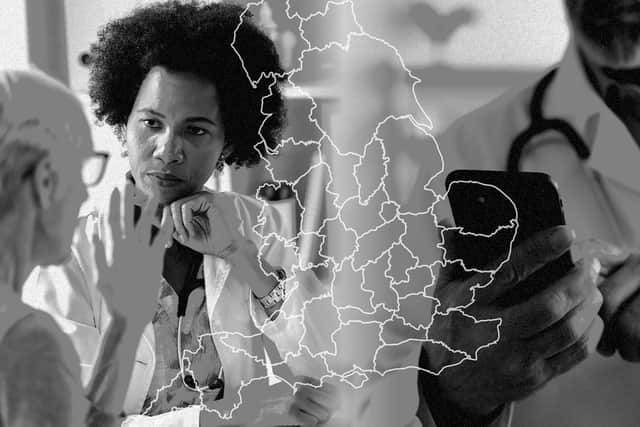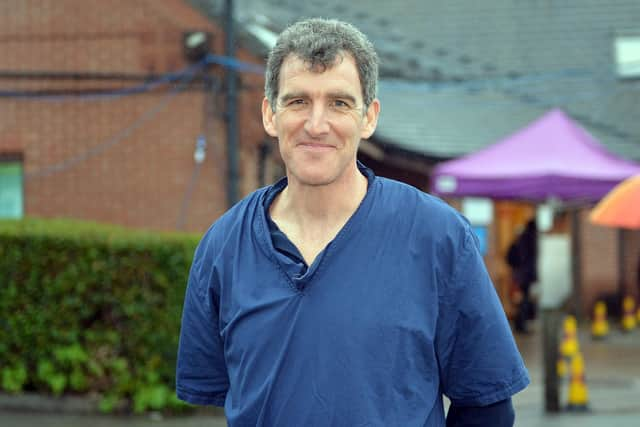This is how much face-to-face GP appointments have risen in Sheffield since Covid restrictions ended
and live on Freeview channel 276
But just over six in 10 patients are still seeing a doctor in person.
NHS figures reveal that in January 2020, 57.7 per cent of patients across the city saw their GP face to face. But figures for August showed an increase of three per cent to 60.74 per cent.
Advertisement
Hide AdAdvertisement
Hide AdBefore the pandemic, 81 per cent of city patients saw their GP face to face.


Sheffield is doing better than many, with South East London rated the worst for face-to-face appointments, at 47.76 per cent, and North Tyneside the best, at 74.29 per cent.
Out of 104 NHS clinical commissioning group areas, Sheffield had the 40th highest figure.
Sheffield GP Dr Ollie Hart, clinical director of the Heeley-Plus Primary Care Network, said GPs preferred to see patients in person.


Advertisement
Hide AdAdvertisement
Hide AdHe said: “Way before Covid, we had been using phone triaging to see if patients needed to see a doctor urgently. It often makes it more convenient for the patient and potentially saves them time in a waiting room.
"But I love to see people face to face. It’s safer for us, but it is the sheer volume of patients at present that means we are having to use anything we can to cope with that volume which has significantly increased, while there has been a decrease in the number of GPs. People have been retiring, and there are some that are burned out after Covid. Some have left permanent posts and switched to part time, locum work."
He said more doctors needed to be recruited in the longer term, but if conditions were poor, people would not go for GP jobs.
"Our message is that we and the patients need to work together,” he said. “We are not hiding.”
Advertisement
Hide AdAdvertisement
Hide AdHealthwatch Sheffield reported in August that patients wanted more choice about having a telephone or face-to-face appointment.
The organisation’s report said patients suggested more resources for clinical staff to handle telephone enquiries – and it said it was noted GP receptionists seem increasingly expected to handle more complex medical situations than they were trained for, such as offering medical advice, discussing test results, or triaging patients.
Dr Terry Hudsen, chairman of NHS Sheffield Clinical Commissioning Group, said city GPs had to rapidly adapt to the pandemic to keep services open and patients and staff safe.
Although lockdown ended, Covid rates were still high. For safety and following national policy, practices were still following social distancing guidelines and reducing face to face contact where possible. Phone consultations also allowed many more patients to be seen than to face-to-face.
Advertisement
Hide AdAdvertisement
Hide AdDr Hudsen said: “At the start of the pandemic, our practices quickly adopted telephone, online and video consultations for a wide variety of appointments. Face-to-face appointments have always remained available to those who need to see a clinician, for example people who need to have a vaccination, cervical screening appointment or those who need physical examinations.
“GP surgeries are busy but I’d like to be clear that practices prioritise anyone with urgent health needs including those experiencing any signs of possible cancer. If a practice can’t see a patient with a genuine urgent health care need they will ensure they are seen elsewhere.”
